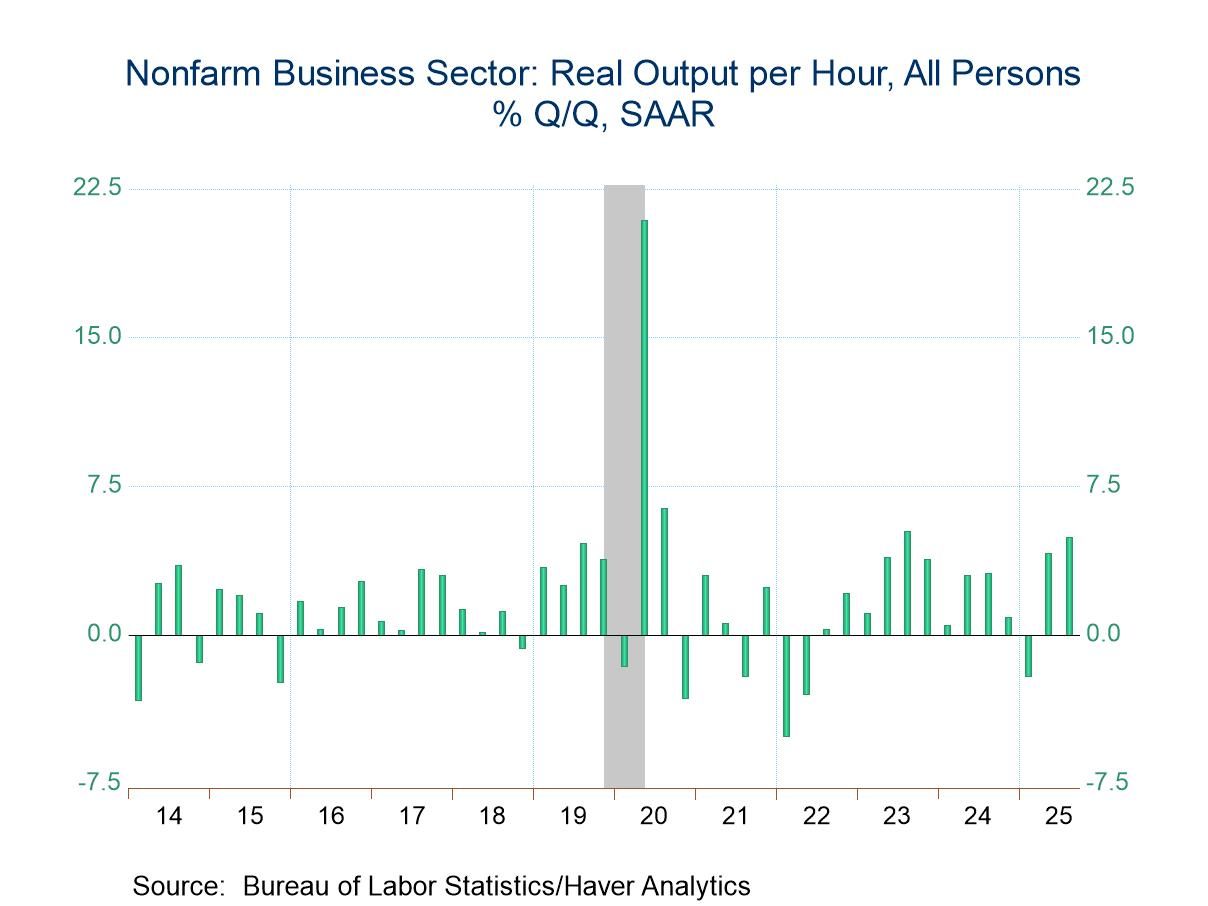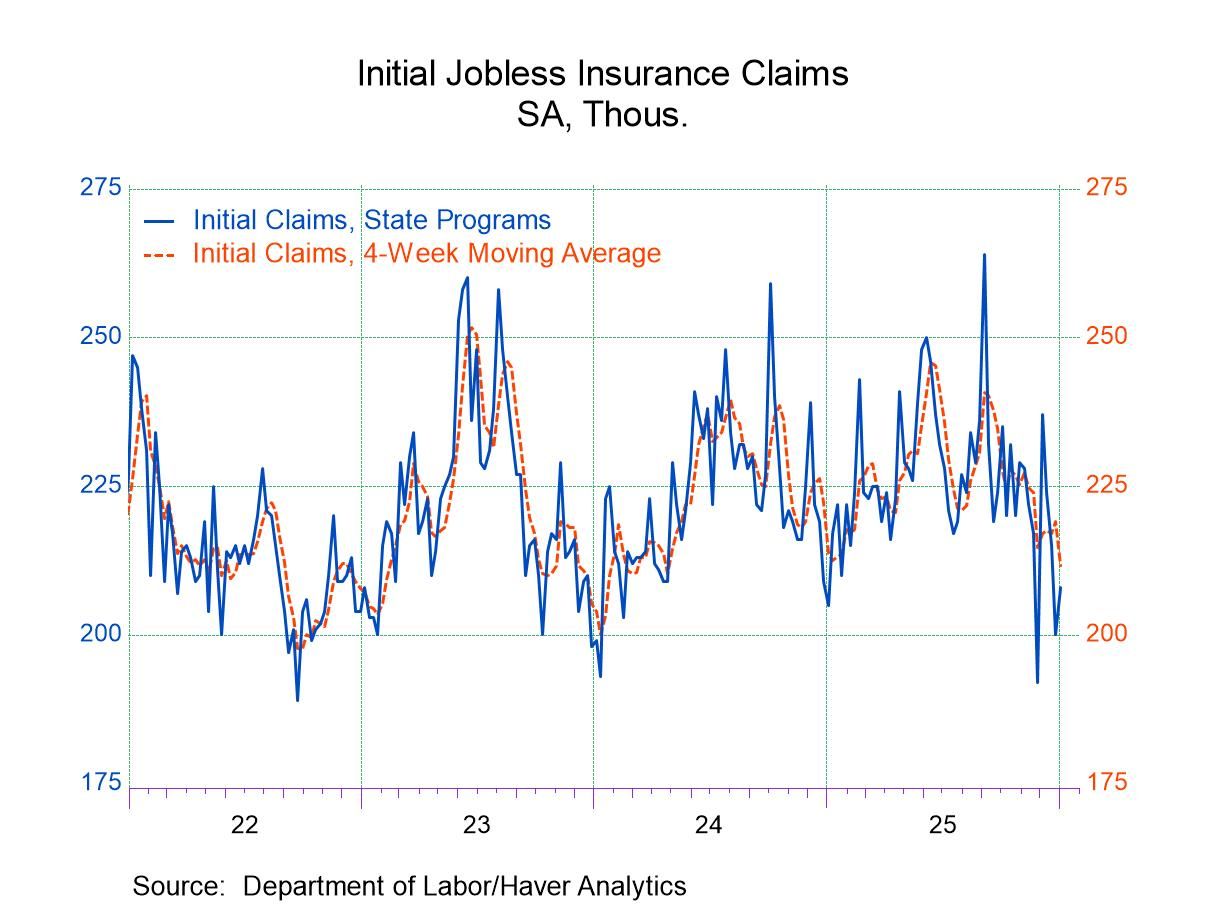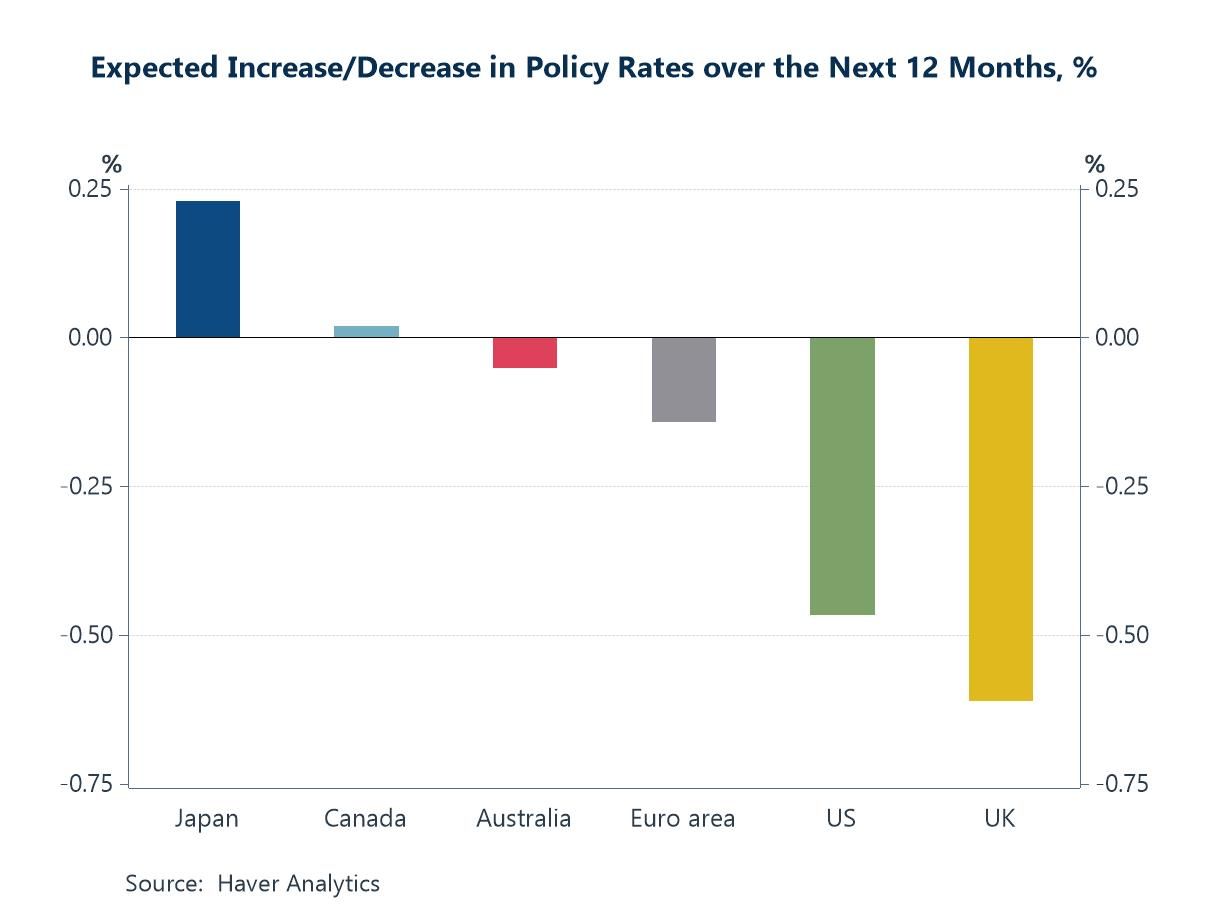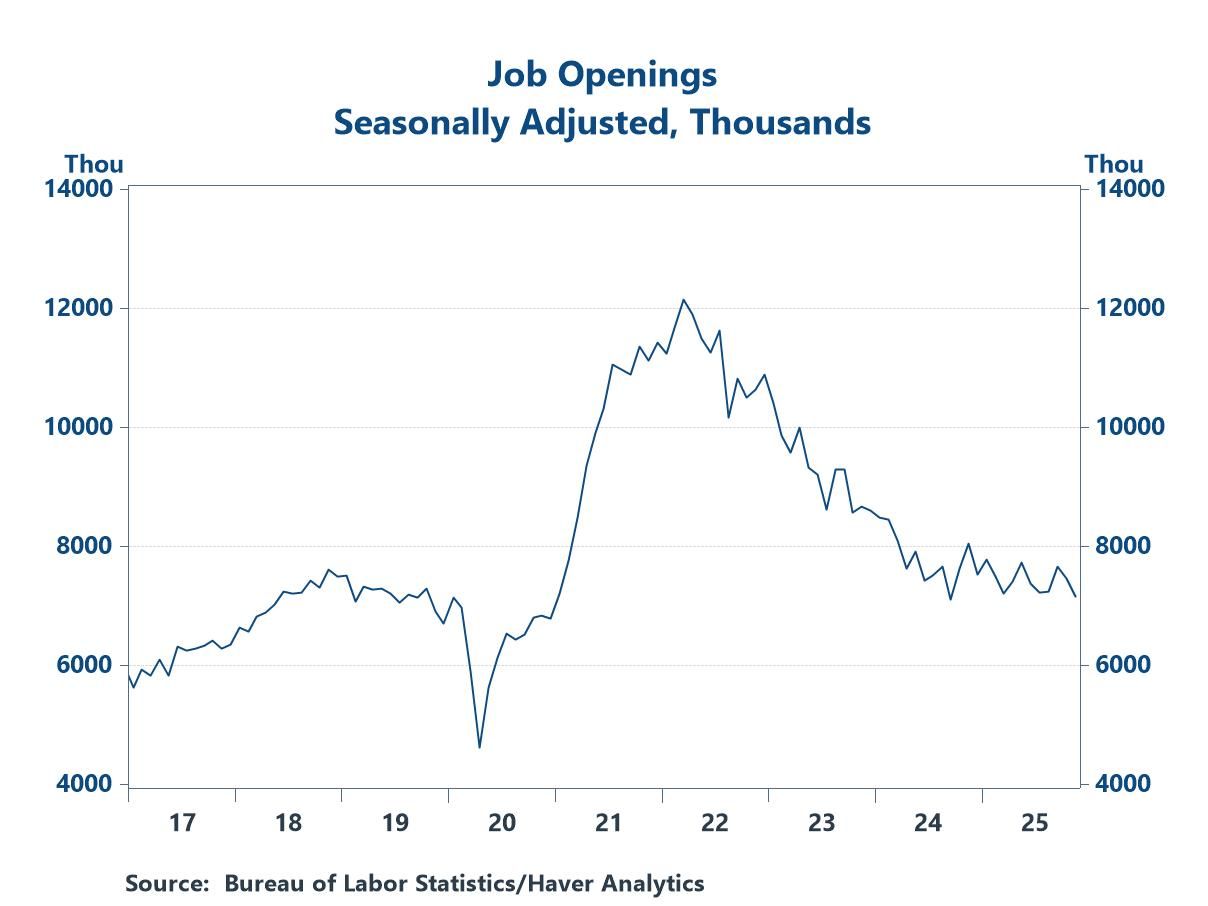 Global| Apr 27 2016
Global| Apr 27 2016Italian Consumer Confidence Edges Back
Summary
The Italian consumer confidence index made a large step back in February; since then, it has hovered at a lower plateau. In April, there was slight further erosion to that plateau. While consumer confidence made a slight step lower, [...]
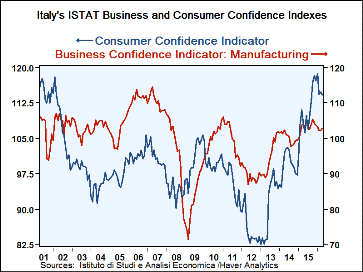 The Italian consumer confidence index made a large step back in February; since then, it has hovered at a lower plateau. In April, there was slight further erosion to that plateau. While consumer confidence made a slight step lower, Italian business confidence took a slight step higher in April. But business confidence sits only at the 59th percentile of its historic queue of values while Italian consume confidence sits in its 91st percentile and is higher less than 9% of the time historically.
The Italian consumer confidence index made a large step back in February; since then, it has hovered at a lower plateau. In April, there was slight further erosion to that plateau. While consumer confidence made a slight step lower, Italian business confidence took a slight step higher in April. But business confidence sits only at the 59th percentile of its historic queue of values while Italian consume confidence sits in its 91st percentile and is higher less than 9% of the time historically.
It remains a bit of a question while Italian confidence is so strong while Italy's economic performance has been so poor. The difference in the ranking of the business vs. consumer confidence indexes gives some hint of that difference. Still it's true that while Italian consumer confidence is not on the moon, it is certainly in its orbit.
The details
At an April index reading of 114.2 down from 114.9 in March, consumer confidence is still in the 91.3 percentile of its historic queue of observations. The overall situation for the past 12 months is rated at -38, an erosion from March's -37 but still a 91.3 percentile standing on its own.
Over the next 12 months, the overall situation is rated at 17, up from 14 in March. This pulls it up to an 89th queue percentile standing. Unemployment ahead is evaluated at a -16, a rise from -18 in March and reflects some increased fear of unemployment rising ahead. Meanwhile, household budgets ahead are rated more strongly at a 2, up from -1 in March. These shifts leave the prospect of unemployment still very low in the bottom 10% of its historic queue of values and the household budget rated at a 44.9 percentile standing.
The assessment of the household's financial situation for the last 12 months and the next 12 months each show some slight improvement. For the last 12 months, the reading is rated at a 77th percentile standing; for the period ahead, it rates at a 74th percentile standing. These are moderate to firm readings.
The ability of households to save shift slightly as both readings erode slightly to a 70th percentile queue standing in the current period compared to a 68th percentile queue standing for the future - not much change.
The assessments of the climate to make major purchases shifted lower by 4 points in April, dropping the net favorable/unfavorable reading to its lowest mark since December but still leaving it at a 97th percentile standing. .
On balance, we see some shifting around by the Italian consumer in an environment where current consumer attitude readings seem high for the conditions that actually prevail in Italy. One thing we do see is that the probability of unemployment is very low and that may carry a very high weight. In other respects, we see some backtracking in evidence coupled with an industrial sector that seems to continue to move sideways at a very moderate level. Of course, in the bigger picture Italy is part of the EMU region that continues to struggle and in which the ECB is pulling out all the stops to try to ignite growth.
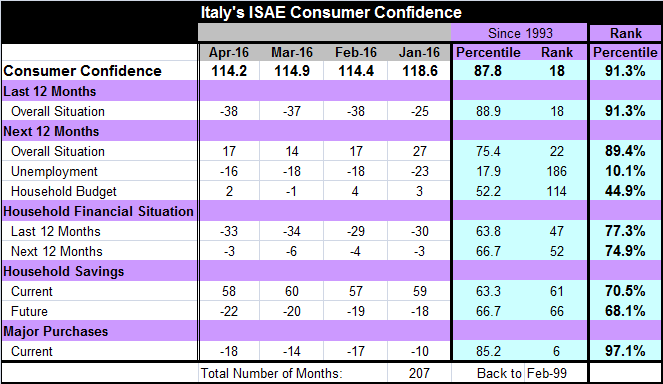
Robert Brusca
AuthorMore in Author Profile »Robert A. Brusca is Chief Economist of Fact and Opinion Economics, a consulting firm he founded in Manhattan. He has been an economist on Wall Street for over 25 years. He has visited central banking and large institutional clients in over 30 countries in his career as an economist. Mr. Brusca was a Divisional Research Chief at the Federal Reserve Bank of NY (Chief of the International Financial markets Division), a Fed Watcher at Irving Trust and Chief Economist at Nikko Securities International. He is widely quoted and appears in various media. Mr. Brusca holds an MA and Ph.D. in economics from Michigan State University and a BA in Economics from the University of Michigan. His research pursues his strong interests in non aligned policy economics as well as international economics. FAO Economics’ research targets investors to assist them in making better investment decisions in stocks, bonds and in a variety of international assets. The company does not manage money and has no conflicts in giving economic advice.



